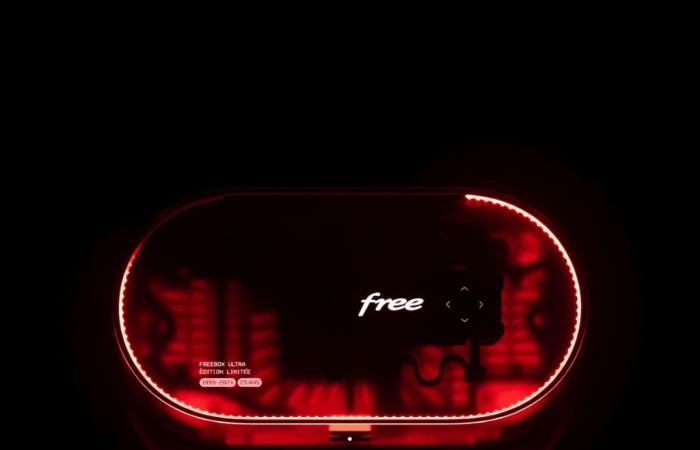Launched as a premium alternative, the Freebox Ultra Limited Series embodies Free's innovation and technological excellence. However, this proposition, although attractive, comes with migration fees for existing subscribers, raising questions about its accessibility. A look back at this promising offer and the costs associated with it.
Technological innovation on point
The Freebox Ultra Limited Series is presented as the flagship of the Freebox range, with features designed for demanding users. Featuring Wi-Fi 6E, 8K compatibility and a sleek design, it promises an optimal connectivity experience.
On the content side, the offer is enriched by partnerships with streaming platforms and options geared towards sports fans, such as Free Foot. This high-end positioning appeals to fans of the latest technologies and connected homes.
Migration costs: a sensitive point
If the offer has everything to please, one element divides: the migration fees imposed on Freebox subscribers who wish to upgrade to this new version. These fees, which can go up to €69 depending on the previous model, are justified by Free as a means of offsetting costs related to equipment management and logistics.
For many loyal customers, this pricing appears to be a barrier, or even a disillusionment. After years of trust in Free, some regret that access to such a promising innovation is not more inclusive.
Why these fees?
Free has always focused on pricing transparency and commitments without surprises. In this context, the imposition of migration fees is consistent with the operator's strategy: to offer competitive offers while controlling its internal costs.
Logistically, migrating a subscriber involves not only processing fees, but also the collection and recycling of old equipment. These considerations, although legitimate, make innovation less accessible for certain users.
Innovation has a price, but for whom?
This debate raises a broader question: should innovation be reserved for a technophile elite ready to pay a high price, or accessible to all, even if it means limiting margins?
Free seems to have opted for a middle path with the Freebox Ultra. If the operator offers competitive prices for new subscribers, the migration fees are clearly aimed at limiting massive adoption which could unbalance its economic model.
A Freebox that divides, but gets people talking
Despite this controversy, the Freebox Ultra Limited Series remains a commercial success. The interest it arouses reflects a market seeking ever higher performance. Free has been able to capture this demand, even if the cost of innovation divides its subscribers.
For the most skeptical, Free offers other more accessible solutions such as Freebox Revolution Light or the offer Ultra Essentialallowing you to benefit from Free services at no additional cost.
An assumed strategic choice
The Freebox Ultra Limited Series illustrates the dilemma faced by operators: offering innovative products while maintaining profitability. If migration costs slow down certain subscribers, they are part of a coherent economic strategy.
The offer nonetheless remains a bold bet for Free, which once again confirms its ability to innovate in a highly competitive market, even if it means sparking some debate.






